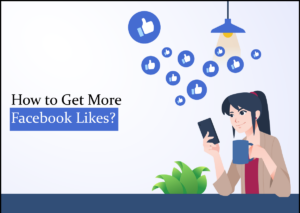Stay Anonymous Online: How Proxy Servers Safeguard Your Identity
With online privacy increasingly scarce, internet users are rightfully concerned about protecting their anonymity and keeping personal details private. Our data is constantly exploited by corporations and monitored by governments. Utilizing a proxy server is one way individuals can regain control over their privacy online.
Table of Contents
What is a Proxy Server?
A proxy server is an intermediary between your device and the wider internet. Connecting through a proxy routes your traffic through the proxy first before reaching your computer. The proxy hides your true IP address, making your device appear to have the proxy’s IP instead of your actual location.
This creates separation between you and external sites, obscuring your identity and location from websites. Proxy servers enable anonymity by concealing your IP address, the unique number assigned to each internet-connected device. With your IP hidden, websites cannot identify your device or track your browsing history.
How Proxy Servers Work
Proxy servers function by redirecting your internet connection through an external server, typically in a different region. When browsing through a proxy, it forwards your requests to websites and returns responses back through the proxy.
Websites only see the proxy server’s IP, not your personal device’s. This prevents linking your browsing activity to your computer or mobile device. The proxy acts as a middleman, facilitating communication without allowing direct access from either side.
Proxy servers strip identifying data before sending your browsing to the internet, encrypting it to protect your identity. This forms an anonymous connection, hiding you from trackers, advertisers, and other third parties.
The Benefits of Using a Proxy Server
- Hide your IP address: Proxies let you browse anonymously by masking your IP. Websites cannot see your real IP or location.
- Access blocked content: Proxies bypass geographic blocks and firewalls to access restricted content.
- Enhanced security: Browsing through a proxy shields your IP, protecting against IP-based attacks.
- Evade tracking: Your online activities and history are concealed from advertisers, governments, and internet providers.
- Maintain privacy: Websites cannot link your browsing back to you, keeping your identity hidden.
- Avoid bandwidth throttling: Proxies prevent bandwidth throttling by ISPs by hiding your usage.
- Access services anonymously: You can securely use web services without revealing your identity.
- Access blocked content: Proxies let you bypass geographic restrictions and firewalls to access blocked or censored content. Certain sites block IP addresses from certain countries, which a proxy can help circumvent.
- Enhanced security: Browsing through a proxy adds a layer of security by shielding your IP. This protects you from IP-based attacks like DDoS attacks.
- Evade tracking and surveillance: Your online activities and browsing habits will be hidden from advertisers, governments, and internet providers when using a proxy.
- Maintain privacy: Proxies prevent websites from linking your browsing history back to you, keeping your identity and personal information private.
- Avoid bandwidth throttling: Proxies can prevent bandwidth throttling imposed by ISPs by masking your internet usage.
- Access services anonymously: You can securely access web services without revealing your identity through account linking or logging in.
Choosing the Best Proxy Server
The degree of privacy and anonymity you obtain depends on which type of proxy server you select, as each has its own strengths and benefits.
- Residential static proxies: Residential proxies source IP addresses from real homes and residential internet connections. This makes your traffic appear as normal consumer web browsing. Residential static IP proxies deliver the highest anonymity as the IP remains constant and matches a real home.
- Datacenter proxies: Datacenter proxies offer IP addresses belonging to data centers. The infrastructure supports high bandwidth for activities like web scraping. However, data center traffic is easier to identify as proxy traffic.
- Shared proxies: Shared proxies distribute one IP address among multiple users. While simple and inexpensive, your anonymity is limited since you share the IP.
- Rotating proxies: Rotating proxies cycle through multiple IP addresses to vary your footprint. But you may get banned once a site identifies the IP range as proxies.
- Private proxies: Private proxies dedicate a single IP address to your exclusive use, maximizing anonymity. But they are more expensive than shared options.
The best proxies for anonymity are residential static and private proxies, which provide dedicated IP addresses from real residential internet connections. Services like PrivateProxy offer high-quality static residential proxy ideal for maintaining your privacy.
Proxy Server Use Cases
There are many reasons regular internet users would want to utilize a proxy server and many ways proxies can protect your daily browsing activity.
- Access social media sites like Facebook or Twitter from school or work networks that block them.
- Circumvent geographic restrictions to access content not available in your country, like Netflix libraries abroad.
- Read news sites and political blogs that may be censored or blocked by your government.
- Research sensitive topics like health issues without linking searches back to your personal identity.
- Avoid targeted ads based on your browsing history and online activities.
- Conduct price comparisons online without retailers inflating prices based on your browsing patterns.
- Access Wi-Fi hotspots securely when connecting from public places like cafes and airports.
- Scrap data or harvest public info from websites without detection.
- Verify your online accounts or perform actions to avoid getting IP banned.
Risks of Using Proxy Servers
While proxies provide more anonymity, there are some risks to weigh when considering using one:
- Reduced internet speeds: Connecting via a proxy often results in slower internet speeds due to the extra hop internet traffic must make.
- Malicious exit nodes: Using a low-quality proxy runs the risk of your traffic exiting through a compromised IP address.
- Less accountability: The anonymity of proxies means you lose the accountability of linking actions to your IP address.
- Proxy bans: Websites can blacklist proxy IP addresses if they identify traffic from those IPs as abusive.
- Logging and monitoring: Free or low-cost proxies may log and monitor traffic, undermining your anonymity.
- No encryption: Data is not encrypted by default when using a basic proxy server.
The best way to minimize risks is to use a reputable paid proxy service that offers server uptime guarantees and doesn’t log traffic.
Safeguard Your Privacy with Proxy Servers
Proxy servers allow you to take control over your online privacy when you want anonymity and don’t want your browsing tied back to you. Hiding your IP address through a proxy provides a buffer between your digital identity and the websites you interact with.
While proxies have some trade-offs, the privacy benefits often outweigh the potential downsides. Protect your personal information and remain anonymous while accessing the open internet by connecting through a reliable proxy service. With cybersecurity threats on the rise, proxy servers deliver an additional layer of protection for your daily browsing.







